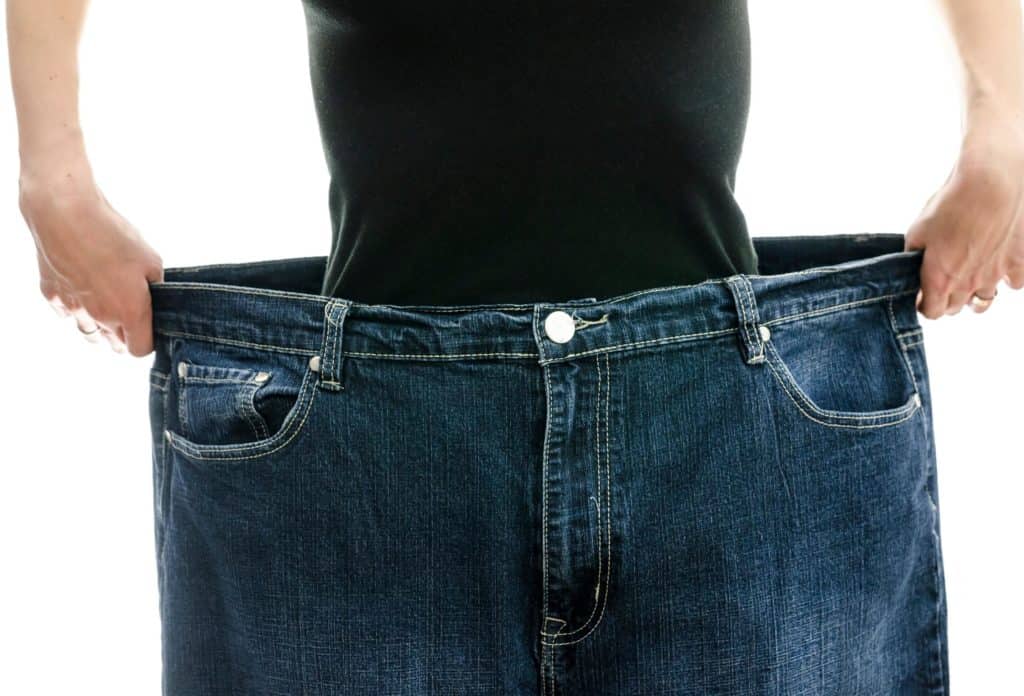
Unintentional weight loss happens when you have lost weight without making any deliberate efforts to change your diet and lifestyle.
In normal circumstances, our body weight can naturally fluctuate within 1-2 kilos from day to day. This can be due to a variety of factors such as water balance and normal day-to-day changes in energy intake. Urine in your bladder and food being digested in your gut can also affect your daily weight measurement.
However, experts say that a loss of about 5% of your body weight over about 6-12 months can be a cause for concern, as it may indicate that you are not getting adequate nutrition, or that your health needs have changed.
What causes unintentional weight loss?
To maintain our body weight, we need to maintain an “energy balance”. This is where the amount of energy that we eat from food equals the amount of energy that our bodies consume across the day. Our bodies consume energy any time we move, but also for normal functioning such as when we breathe and even to keep our hearts pumping.
Small changes in diet or exercise routine may result in a change in energy balance that can result in weight loss. For example, you might have started a new job that has a longer walk in your daily commute, or you’ve stopped eating your usual afternoon tea in a busy period, resulting in a change in energy balance.
Other causes of unintentional weight loss can include:
- Decreased food intake due to difficulty eating, for example swallowing difficulties or poor oral health
- Stress or anxiety
- Muscle wasting or loss of muscle
- Illnesses that increase your body’s energy needs, such as inflammatory conditions, thyroid disorders, or cancer
- Loss of appetite due to illness or stress
- Mental health conditions including anorexia nervosa or bulimia nervosa
- Medications
- As a side effect of cancer treatments such as chemotherapy and radiotherapy
- Gastrointestinal surgeries that impact digestion
What should I do if I have lost weight unintentionally?
If you have lost weight unintentionally, and this can’t be attributed to changes in diet or lifestyle, then it is best to speak to your GP to determine the cause. The next best step is to see a dietitian to discuss strategies for slowing or stopping the weight loss using healthy eating strategies, and for regaining the lost weight if desired. Continued weight loss can lead to malnutrition, a condition where the body is not receiving enough nutrition to support good health.
Outcomes of malnutrition include:
- Loss of muscle mass and function, leading to muscle weakness and increased risk of falls
- Fatigue, difficulty concentrating, and irritability
- Loss of appetite
- Reduced immune function and increased risk of infection
- Slow healing wounds
- Decreased skin integrity, increasing risk of pressure injuries if immobile for long periods
- Stunted growth or failure to thrive in children and infants
How can a Dietitian help with unintentional weight loss?
When you have lost weight unintentionally, it may be due to a change in the amount of energy your body needs to get through the day. In this case, a dietitian can work with you to determine how much energy will support your body’s needs and to develop strategies for meeting these needs through food, or nutrition supplements if required.
If you have a reduction in appetite to due to physical or mental illness, a dietitian can work with you on strategies either to increase your appetite, or to ensure you are able to get enough nutrition in smaller quantities of food.
For individuals who have reduced intake due to difficulty with swallowing or chewing, or due to symptoms of illness that impact on ability to eat, a dietitian can help you to modify foods to ensure they are safe and easy for you to eat.
Some examples of strategies for increasing energy intake include:
- Consuming a high protein, high energy diet
- Eating small, frequent meals to reduce the impact of symptoms such as nausea
- Modifying the texture of foods to make them easier to chew or swallow
- Adjusting the times of day that you eat to make the most of when your appetite is better
- Increasing the appeal of foods with different flavours, for example by using herbs and spices
- Consuming a nutrition supplement
What about nutrition supplements?
Nutrition supplements are used when you are struggling to get enough nutrition to prevent weight loss through food alone and require a little extra help to meet your body’s energy needs.
The supplements that are used in this case are different from those that are usually promoted for weight loss or sports. They are specifically designed to be “nutritionally complete”, which means that you would be able to live on them even if you didn’t eat any food at all.
Nutrition supplements come in ready-to-drink form, or as a powder that can be made into a drink or stirred into food to increase the nutritional value of that food. They can also be given via ‘tube feeding’ if you are unable to consume any food or drinks through your mouth.
If you are concerned that you may need additional nutrition, a dietitian can help you to decide whether nutrition supplements are right for you and choose the best one for your needs.
Our dietitian Sian Hopkins has a keen interest in helping individuals manage undernutrition and would like to help you maximise your health!
If you would like more information on areas Sian can help you, have a look at Sian’s page.



